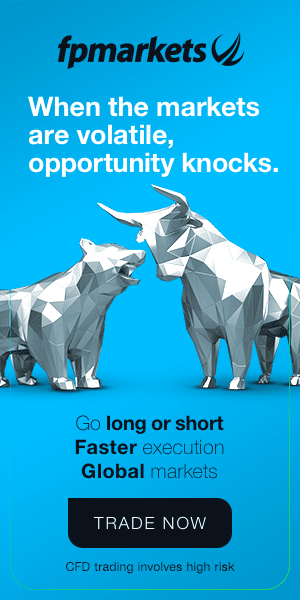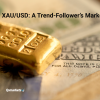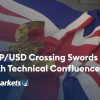OPENING CALL: The Australian share market is expected to open higher. The SPI Futures is expected to be up 19 points
In a major concession to protesters, Hong Kong Chief Executive Carrie Lam said she would withdraw the China extradition bill that sparked unrest in the city.
In a new white paper, Facebook outlines how mandates to protect users’ privacy and give them the right to take their data where they choose are potentially in conflict. The social network is seeking outside input on how to reconcile the two.
Overnight Summary
Each Market in Focus
Despite a push higher in the final minutes of trade, Australian shares logged a third straight decline to underperform most other markets in the region. The S&P/ASX 200 settled 0.3% lower at 6553, extending this week’s retreat to 0.8% so far.
Healthcare and telecommunications lead losses across most sectors, while companies such as Treasury Wine and Medibank trading ex-dividend add to the weakness. Still, gold producers buck the trend after another push higher by the precious metal overnight with fresh concerns about global growth. Oil Search gains 3.3% after Papua New Guinea’s government agreed on Tuesday to stand by a gas agreement that underpins planned LNG expansion work in the country.
U.S. stocks rose intraday, following rallies in global markets as political
developments eased fears of instability in Hong Kong and a messy Brexit.
The Dow Jones Industrial Average rose 217 points, or 0.8%, in afternoon trading, rebounding from a sharp drop the day before. The S&P 500 was up 1% and the Nasdaq Composite climbed 1.2%.
Stocks in the Asian financial hub of Hong Kong jumped as the city’s chief executive, Carrie Lam, said she would formally withdraw the extradition bill that sparked monthslong demonstrations that have hurt the territory’s economy. The Hang Seng Index rose 3.9% Wednesday, its biggest one-day gain since November.
Technology stocks were among the best performers, with Intel rallying 4% and Apple rising 1.6%. The tech sector has outperformed the broader market this year, but was battered by the U.S.-China trade fight last month.
Wednesday’s broad gains for stocks came despite a backdrop of weak global economic data. A measure of factory activity in the U.S. slipped Tuesday, weighing on major indexes.
Stocks have been supported by comments from U.S. Federal Reserve officials suggesting that they are open to further cuts in interest rates. New York Fed leader John Williams said Wednesday that the U.S. central bank will “act as appropriate” to keep the economy moving forward.
New trade data showed a mixed picture on the U.S. economy, with a healthy consumer sector helping offset weakness in manufacturing. The U.S. trade deficit in goods and services decreased to $53.99 billion in July, the Commerce Department said Wednesday.
The data showed a drop in imports of capital goods used by businesses during the first seven months of the year. But imports of consumer goods rose in that period, reflecting the resilience of American household spending despite slowing global growth, volatile financial markets and the specter of tariffs on goods imported from China.
Gold futures shook off earlier losses to finish at a fresh six-year peak, buoyed by economic worries and weakness in the dollar.
Silver prices outpaced gold’s gains to end higher for a third straight session, with the white metal notching its highest finish in about three years.
December gold added $4.50, or nearly 0.3%, to settle at $1,560.40 an ounce, after surging 1.7% Tuesday on Comex, closing around the highest for a most-active contract since April 2013, according to FactSet data.
Prices for the yellow metal had spent part of the session trading lower, pressured by a rebound in global equity markets on the back of signs that tensions in Hong Kong — a source of global anxieties — were momentarily easing.
Silver for December delivery, meanwhile, rose 31 cents, or 1.6%. to $19.547 an ounce, extending its 4.9% gain from Tuesday and marking its highest level since Sept. 26, 2016, when the metal settled at $19.60 an ounce.
A firm retreat in the U.S. dollar Wednesday provided support for gold. A measure of the buck, the ICE U.S. Dollar Index, a gauge of the U.S. unit against a basket of a half-dozen currencies, was down 0.6% at 98.458. A weaker dollar tends to make gold and other dollar-priced metals more attractive to buyers using other currencies.
On Wednesday afternoon, gold futures extended their price gains into electronic trading after the Federal Reserve’s Beige Book, the central bank’s periodic examination of the U.S. economy, showed that the overall economy expanded at the same “modest pace” seen in earlier reports this year. Gold was at $1,564.10 shortly after the release.
U.S. crude futures rose 4.3% to $56.26 a barrel after Hong Kong’s chief executive said she would withdraw the extradition bill that fueled monthslong demonstrations and hurt the territory’s economy. Oil also got a boost with analysts expecting inventory data to show a decline in stockpiles, posting its largest one-day advance in nearly two months.
Prices swung more than 1% for the sixth consecutive session, oil’s longest such streak since early August, when it posted seven such moves in a row, according to Dow Jones Market Data. If the stretch eclipses seven days later this week, that would mark the longest streak since June 2018.
Brent crude, the global gauge of prices, advanced 4.2% to $60.70 a barrel.
Wednesday was the latest example of oil and other industrial commodities trading similarly to stocks and other risky assets. Developments in the U.S.-China trade war and bets on a slowing world economy have driven such lockstep market moves in recent weeks with many analysts fear that slower growth will limit fuel demand.
Still, analysts said the removal of some geopolitical uncertainty in Hong Kong was a positive for global growth, which has also come under pressure from Brexit and other political shifts in recent months. In another potentially positive sign to those worried about geopolitical issues, U.K. lawmakers delivered a blow to Prime Minister Boris Johnson’s Brexit strategy with a Tuesday vote aimed at delaying the country’s exit from the European Union.
Concerns about the global economy have led many analysts to project that oil supply will exceed demand in 2020, keeping a lid on prices moving forward. Some investors are particularly worried about the impact of a drawn-out tariff spat between the world’s two largest economies that starts hurting consumers.
U.K. lawmakers blocked a so-called no-deal Brexit, passing legislation that would require Prime Minister Boris Johnson to ask the European Union to extend the deadline for leaving for three months beyond Oct. 31 if an agreement dictating the country’s relationship with the bloc hasn’t been reached by then.
Opposition lawmakers and rebels from Johnson’s own Conservative party passed the bill in a 327-299 vote in the House of Commons, according to the BBC. The move still requires approval by the House of Lords.
Johnson has said he would push for a vote on an early general election if the measure is ultimately approved, as is generally expected. Reduced chances of a no-deal Brexit, in which the U.K. leaves the EU without an agreement, were credited with lifting the beaten-down pound, which rose 1.1% versus the U.S. dollar to trade at $1.2219. The pound has fallen 4.2% versus the dollar in the year to date amid prolonged Brexit wrangling.
European markets closed higher as global markets welcomed political developments in Europe and Asia. The pan-European Stoxx Europe 600 gained 0.9% to 383, while the FTSE rose 0.6% as UK lawmakers pressed ahead with legislation to stop the UK crashing out of the EU without a deal.
The DAX climbed nearly 1%, the CAC-40 rose 1.2% and Milan’s FTSE MIB gained 1.6% in response to the prospect of a new government coalition in Italy. Meanwhile, stocks with exposure to Asia rise after the leader of Hong Kong withdrew a controversial government bill allowing extradition to mainland China.
Hong Kong stocks jumped as the city’s Chief Executive Carrie Lam said she would formally withdraw the extradition bill that sparked monthslong demonstrations that have hurt the territory’s economy. The Hang Seng Index rose 3.9% Wednesday, its biggest one-day gain since November.
blue-chip indexes also advanced, with the Shanghai Composite up 0.9%, Korea’s Kospi up 1.2% as Japan’s Nikkei edged up 0.1%.
The news from Hong Kong raised hopes of a return to stability after months of protests, and the Italian news was reducing another of investors’ “worry factors,” said Peter Dixon, a senior economist at Commerzbank.
Indian shares edged higher alongside regional peers, with the BSE Sensex gaining 0.4% at 36724.74, led by financial and commodities stocks.
State Bank of India rose 2.5%, while HDFC Bank gained 1.7%. Commodities conglomerate Tata Steel ended 2.4% higher, while its peer Vedanta closed 1.9% higher. The automotive sector, however, was among the biggest losers. Maruti Suzuki fell 3.6% on news that it has to shut down two plants for two working days. Tata Motors shed 2.8% and Mahindra & Mahindra lost 1.9%.
Singapore’s Straits Times Index closed 1.3% higher at 3130.57, in line with most Asian markets that got a boost from news that the unpopular extradition bill in Hong Kong will be withdrawn. Real estate developers were among the top gainers, led by Hongkong Land Holdings closed 8.3% higher.







 Access +10,000 financial
instruments
Access +10,000 financial
instruments

